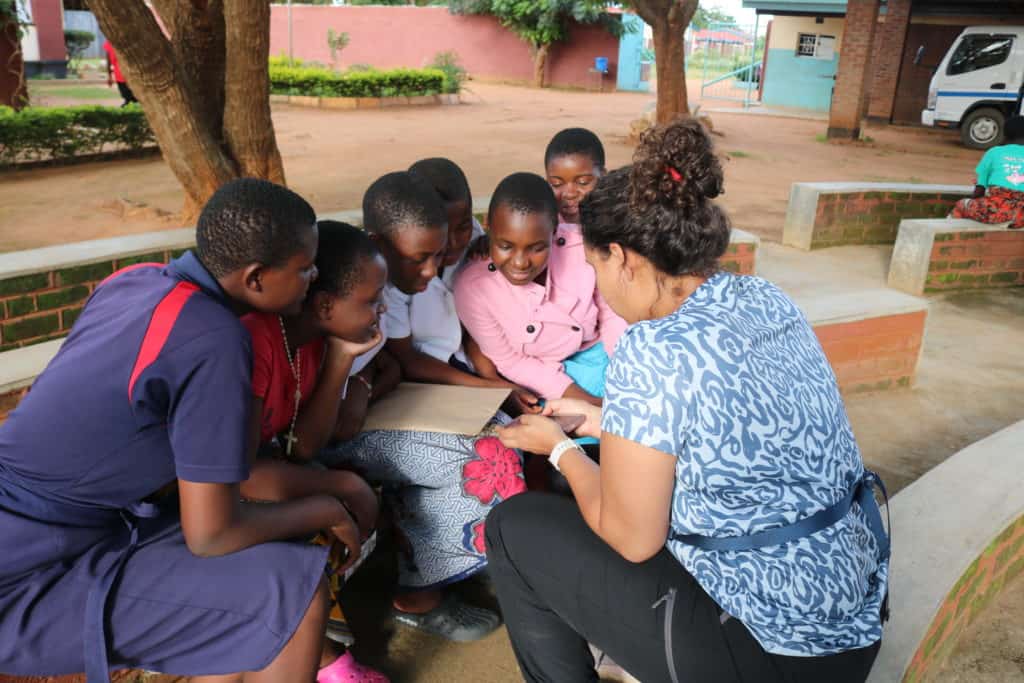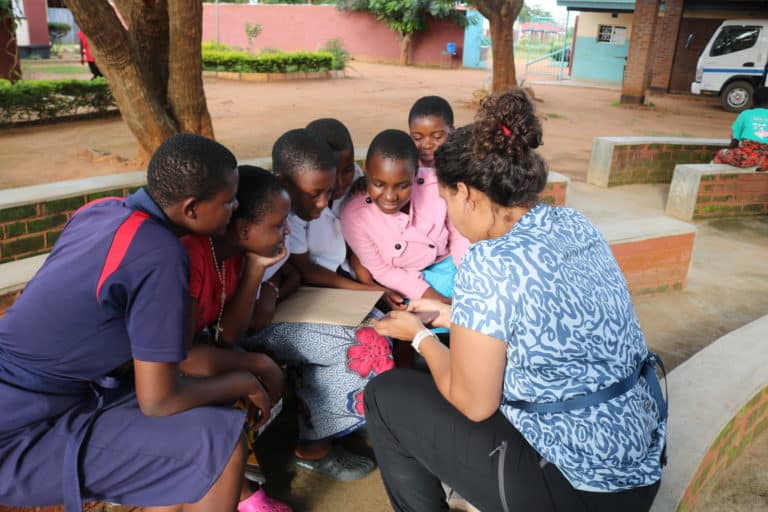8 Must-Know Chichewa Words



Orant Charities Africa works exclusively in rural Malawi. Meanwhile, many of our friends and supporters live in the United States. We take great joy in connecting across cultures. Language is a powerful connector.
Malawi’s national language is Chichewa. English is its official language. Chichewa is a Bantu language. It is also spoken in Mozambique and Zambia. About seven to eight million people speak Chichewa. As a phonetic language, it is written as it sounds when spoken. Though most people in Malawi speak Chichewa, each tribe speaks their own unique language as well.
When meeting someone in Malawi, you should greet them. Especially if they are an elder. While a handshake works, in rural areas, you may grasp your right forearm with your left hand to show respect.
How are you? – Muli bwanji?
I am fine – Ndiri bwino.
Please – Chonde
Thank you – Zikomo
You are welcome – Takulandirani
Come – Bwera
My friend – Nzanga
Food – Chakudya
Read the recipe here.
In rural Malawi, Christmas is not defined by glittering shopping malls or towering Christmas trees. There is no snow, no lights in the streets, and no busy stores packed with last-minute shoppers. But it still carries a warmth, a heartbeat, and a sense of togetherness that feels truly magical.
As the year draws to a close, we take a moment to reflect on the journey we have walked together, one defined by resilience, compassion, and a shared commitment to building stronger, healthier, and more empowered communities.
Every year, the 16 Days of Activism reminds us to stand up against gender-based violence.
| Cookie | Duration | Description |
|---|---|---|
| cookielawinfo-checkbox-analytics | 11 months | This cookie is set by GDPR Cookie Consent plugin. The cookie is used to store the user consent for the cookies in the category "Analytics". |
| cookielawinfo-checkbox-functional | 11 months | The cookie is set by GDPR cookie consent to record the user consent for the cookies in the category "Functional". |
| cookielawinfo-checkbox-necessary | 11 months | This cookie is set by GDPR Cookie Consent plugin. The cookies is used to store the user consent for the cookies in the category "Necessary". |
| cookielawinfo-checkbox-others | 11 months | This cookie is set by GDPR Cookie Consent plugin. The cookie is used to store the user consent for the cookies in the category "Other. |
| cookielawinfo-checkbox-performance | 11 months | This cookie is set by GDPR Cookie Consent plugin. The cookie is used to store the user consent for the cookies in the category "Performance". |
| viewed_cookie_policy | 11 months | The cookie is set by the GDPR Cookie Consent plugin and is used to store whether or not user has consented to the use of cookies. It does not store any personal data. |